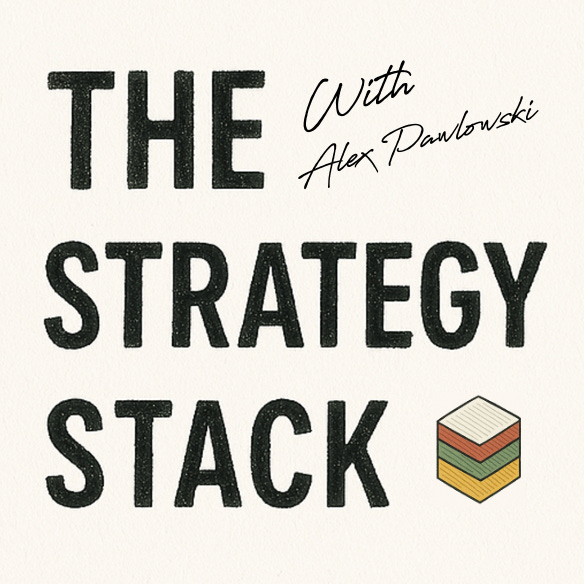Strategy Stack: Weekly Tech Breakdown
👥 Featuring:
Guest: Xinran Ma – Designer, Writer of Design with AI, and Advocate for Practical AI Application
Host: Alex (The Strategy Stack)
Key Topics Covered
Xinran shared his design journey from traditional digital product work to leading-edge experimentation in AI-assisted design. His publication Design with AI focuses on the real, often messy intersection of evolving AI tools and human-centered design practice.
Discussed how AI’s rapid evolution introduces not just new tools—but new philosophical, ethical, and cognitive questions. Xinran emphasized the role of conscious experimentation, urging designers to understand both what a tool does and where it fits within the broader human workflow.
Explored the concept of fluid systems design, where neither the tools nor the problems are fixed. Xinran likened AI to designing for shifting material: you need an open, iterative, risk-aware mindset to work with something that’s constantly evolving.
Debated how cognitive load is changing. While AI can offload mental overhead and increase focus, it can also overwhelm users with too many tools and micro-decisions. Xinran called for prioritization frameworks and mindful integration of new capabilities.
Alex expanded on the idea of AI as thinking infrastructure, not just a tool—something that alters the shape of problems and decisions, often invisibly. The conversation probed whether AI’s capacity to remember and adapt changes how we think about tools—and even about ourselves.
Together, they examined how human systems can maintain agency in the face of recursive AI learning loops that may reinforce past mistakes. Design, they argue, is one of the last lines of reflection before systems scale.
Spoke about the future of multi-modal interfaces: from text to voice to gesture and visual prompts. Xinran proposed adaptive UX that responds to individual user habits, making tools feel more personal—and more invisible.
Critiqued current AI for its tendency to hallucinate, misleading users with overly confident outputs. Xinran stressed the importance of verifiable outputs, emphasizing that design isn’t just about creation—it’s about discernment.
Explored how AI might reshape culture and memory by storing and reflecting personal usage over time. They reflected on libraries, oral history, and whether new AI systems will act as digital oracles shaped by localized cultural norms.
💡 Takeaways
From Alex:
AI collapses distance between signal and decision—but that also compresses judgment.
Thinking in systems means asking: who sets the frame, and who watches the watchers?
In the future, AI might live less in tabs and more in ambient interfaces—co-designers that see, hear, and recall.
From Xinran:
Iteration is not optional—it's the new design literacy. Tools evolve faster than methods.
Cognitive load isn’t just mental—it’s emotional and ethical. Tool choice is part of strategy.
Real design power comes from identifying the right problem—not just generating infinite variations.















Share this post